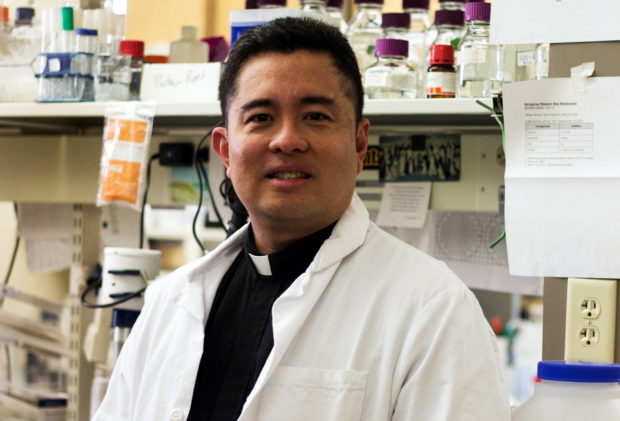Lawmakers seek probe of OCTA Research credentials
On top of its regular recommendations, OCTA Research has called the increasing number of COVID-19 infections a “surge” despite the refusal of the Department of Health (DOH) to use the term, and cited latest indicators as showing that a community transmission of the highly contagious Delta variant was occurring.
And now members of the House of Representatives have crossed party lines to seek a formal inquiry into the credentials of OCTA, an independent and interdisciplinary group composed primarily of faculty members and alumni of the University of the Philippines (UP).
In filing House Resolution No. 2075, Representatives Bernadette Herrera, Kristine Singson-Meehan, Sharon Garin, Stella Quimbo and Jesus Suntay called for a probe of OCTA’s “qualifications, research methodologies, partnerships and composition.”
“There is a public health and public policy need to ensure the safety and security of the population during this pandemic, and that information being distributed is correct and not irresponsibly and erroneously published,” the lawmakers said in the resolution.
Health reform advocate Dr. Tony Leachon, a former adviser of the task force heading the government response to the pandemic, said the lawmakers’ move that appeared to cast doubt on OCTA’s credibility was “unfortunate.”
Article continues after this advertisementFrom his base in Germany, OCTA member and biology professor Nicanor Austriaco raised the need to work together and pointed out that the “common enemy” was COVID-19 and the threats it brings in the form of the highly infectious Delta variant.
Article continues after this advertisement‘Denied’ partnership
The lawmakers said they also wanted to validate the ties between OCTA Research and the UP System, saying that the group “publicized a partnership which the latter seemingly denied.”
They cited the statement of UP Diliman associate professor Peter Cayton in one news report that there was no office within the campus named OCTA, and that it “does not exist in UP’s organizational structure.”
The lawmakers also quoted infectious disease expert and government adviser Dr. Edsel Salvana as saying that OCTA had been using “incomplete and erroneous” information, referring to its projection that was supposedly based on two-week-old data.
Data analysis
“Even a student of clinical epidemiology will tell you that that is not valid because cases that happened within the last two weeks are subject to error, because some get tested later or earlier. There are backlogs, so if you are making projections based on data that [are] incomplete or erroneous, you are going to come out with erroneous projections,” Salvana said, as quoted in the resolution.
OCTA describes itself in its website as a “polling, research and consultation firm” providing “comprehensive, holistic, accurate, rigorous and insightful data analysis to help our clients in government, the private sector and the NGO community.”
It is based in Old Balara, Quezon City, and among its core members are Guido David, professor at the UP Institute of Mathematics; Ranjit Rye, assistant professor at the UP Department of Political Science; and research associate Maria Patricia Agbulos.
Among OCTA’s other members are independent researchers from the University of Santo Tomas (UST) and Providence College in the United States, and medical doctors. It states that its findings and recommendations are its own and do not reflect the respective positions of UP, UST or Providence College.
In October 2020, presidential spokesperson Harry Roque told OCTA to stop making its recommendations public. He said it could relay its suggestions privately to the Inter-Agency Task Force for the Management of Emerging Infectious Diseases (IATF).
Roque said OCTA did not have as many epidemiologists as those working with the IATF.
‘We must work together’
Austriaco, who is also a Catholic priest, made a presentation at the Go Negosyo forum on Wednesday.
Addressing the issue of the House resolution, he said: “Despite our differences, we must work together as one people to fight our common enemy.”
“It will take sacrifice and patience,” he added.
Most recently, OCTA pushed for the imposition of a two-week hard lockdown in the National Capital Region (NCR) in light of a “serious surge” in COVID-19 infections (See related story on Page A4). It said “the rapid growth rate suggests the possibility of community transmission of the Delta variant in the NCR.”
But Salvana questioned OCTA’s methods, decrying its “poor analysis” of the case reproduction rate.
Credentials
In a Viber message, Leachon said there should be no conflict between the government and OCTA, and that the credentials of government advisers should also be examined.
“The war is against the coronavirus and not against each other. They have different specialties and they should complement each other. We should rise above this impasse and hope to resolve this crisis,” said Leachon, who was asked to resign in June last year as adviser to the National Task Force Against COVID-19, supposedly for making his criticism of the DOH public.
Leachon also said that if the lawmakers wanted to look into the credentials of the OCTA members, then “it’s also good to determine the credentials of the… advisers of the DOH, so they will be maximized for the greater glory of the country.”
